How should journalists write about killings near schools? The students weigh in
Sonali Kohli worked on this project while participating in the USC Annenberg Center for Health Journalism's 2018 California Fellowship.
Other stories in this series include:
What it’s like to go to school when dozens have been killed nearby
Resources for students and families affected by violence near schools
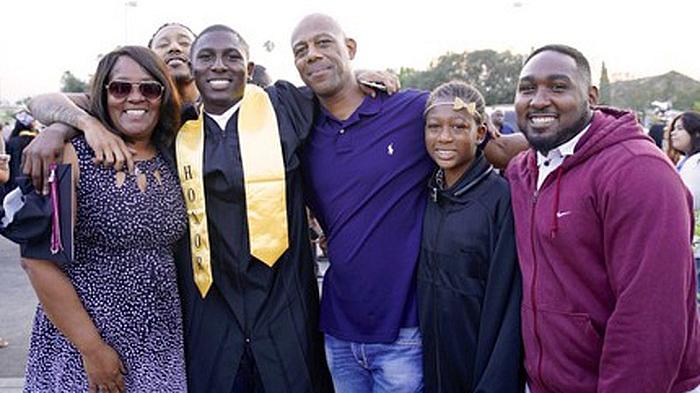
In spring 2018, about a dozen students from two South Los Angeles high schools — Fremont and Manual Arts — participated in a round-table discussion at the offices of the nonprofit organization Community Coalition, where the students are involved in advocacy and community-building.
They read a story from The Times' Homicide Report about Maurice McKinzy, who was killed just blocks from Fremont High School in 2017, and talked about the kind of coverage they want to see about their communities, as well as their experience trying to stay safe in their neighborhoods.
The story below is annotated with the comments that they wrote or said during the discussion. Their words are unedited.
Friends mourn father and former basketball coach: ‘He was the dad everybody wishes they had’
By Nicole Santa Cruz
Maurice McKinzy was checking out a Camry that a friend had purchased for his daughter, blocks away from where McKinzy had grown up.About 10:30 p.m. on Feb. 1, McKinzy, 45, and his friends saw a group of at least three approach, police said.
McKinzy began walking back to his car in the 7500 block of South Main Street when he was shot at least five times with a high-powered weapon, according to coroner’s records.
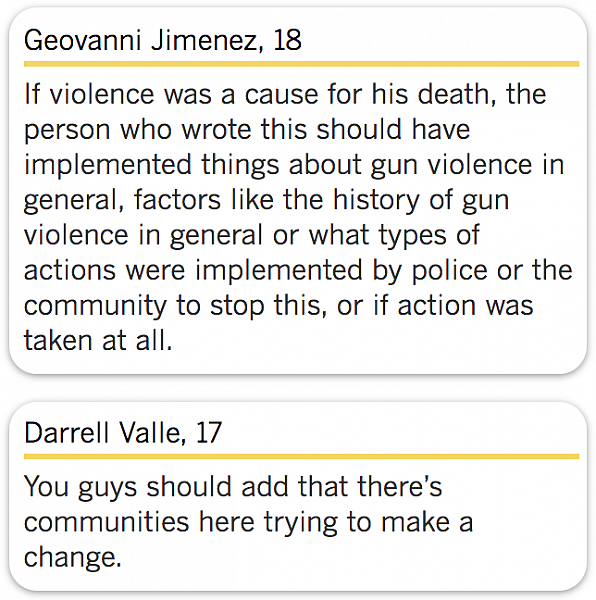
“We don’t know why he would have been targeted,” said Los Angeles Police Det. Eric Crosson. Police are still searching for the gunman.
McKinzy, a traffic officer at Los Angeles International Airport, was a father to a 19-year-old son and an 11-year-old daughter. He had helped raise two stepchildren and was a former junior varsity and assistant varsity basketball coach at John C. Fremont High School, about a half a mile from the scene of the shooting.
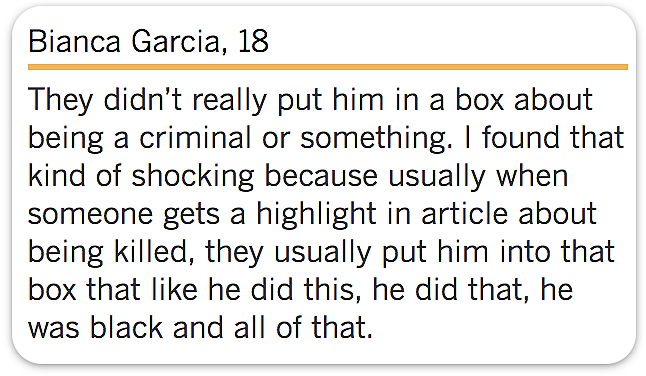
“He was the last person I would think something like this would happen to,” said Louis Austin, 46.
Austin and McKinzy grew up in the same neighborhood and were friends since the seventh grade. For McKinzy, the rows of houses and duplexes in Florence and the people who lived there were familiar. His grandmother once lived there, and his mother was raised there.
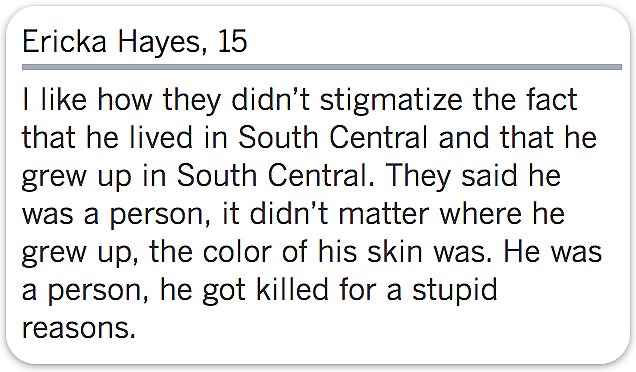
Many of his childhood friends were still in the area, and some young people knew him from his time coaching basketball.
For his friends and family, the reality that McKinzy was shot in a community where he had made a positive influence is devastating.
“That’s what’s so tragic. That man grew up in that area his entire life. It was never an issue for him. They knew he was a basketball player, and they knew he was a coach,” said Heather Echols, the mother of McKinzy’s son, Marquis.
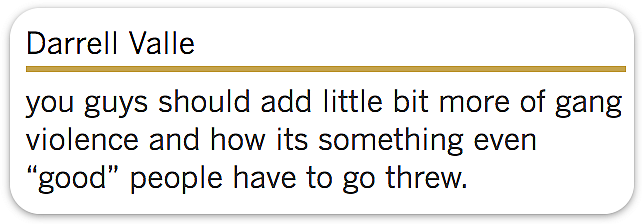
Growing up, McKinzy and Austin had to navigate the violence in their South Los Angeles neighborhood. Walking home from school meant crossing through rival gangs’ territory. But the two friends stayed out of trouble, choosing instead to be athletes. In 1989, their basketball team won a city championship, and McKinzy was the captain, Austin said.
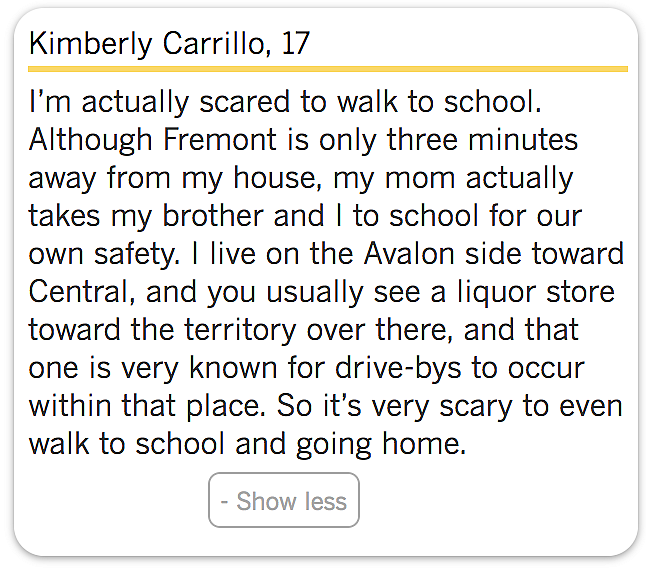
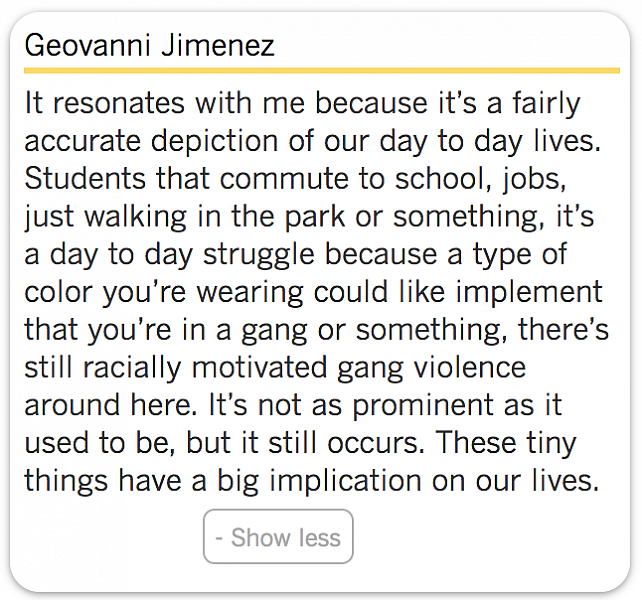
A few years after high school, McKinzy came back to coach the students. He became known as the guy who could build up a player’s busted self-esteem. He was more than an authority figure in the students’ lives; he was also someone they could look up to. At one point, McKinzy bought a large SUV to be able to drive students home.
“He was the dad everybody wishes they had,” Echols said.
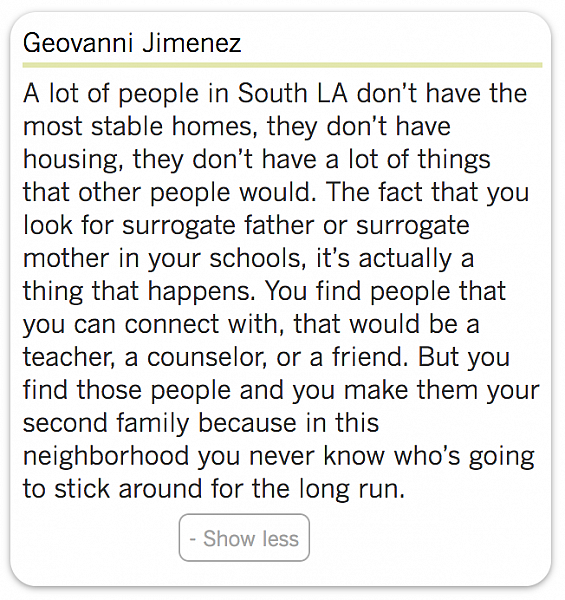
When Echols met McKinzy in the mid-1990s, she had recently separated from her husband and had two young children. McKinzy quickly began treating them as his own. Though the relationship didn’t work out, Echols and McKinzy remained close, and McKinzy sometimes referred to their family as the “McEchols.’”
In 2012, McKinzy quit coaching so he could be available for son Marquis’ basketball games.
“If he had to switch his schedule or sneak out … whatever he had to do, he’d figure it out,” Echols said.

McKinzy was also known as a “surrogate father” for young people around him, said George McLin, who grew up with McKinzy and Austin and is now the basketball coach at Fremont High School.
“He was there to take my son to practice; he was there to pick my son up from practice,” McLin said. “He literally helped raise my son.”
When Austin’s son, Dijon, went to the prom in 2015, Austin was preoccupied with prepping his home for a gathering. Amid the frenzy, he found McKinzy helping the teenager with his tuxedo.
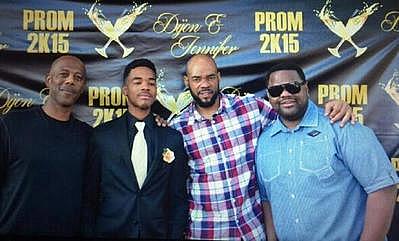
McKinzy nodded at Austin. It was taken care of.
“The next thing I know, my son comes out sharp and together,” Austin said.
McKinzy’s recent ex-girlfriend, Trina McGrew, said McKinzy was a homebody. It wasn’t like him to be out late at night.
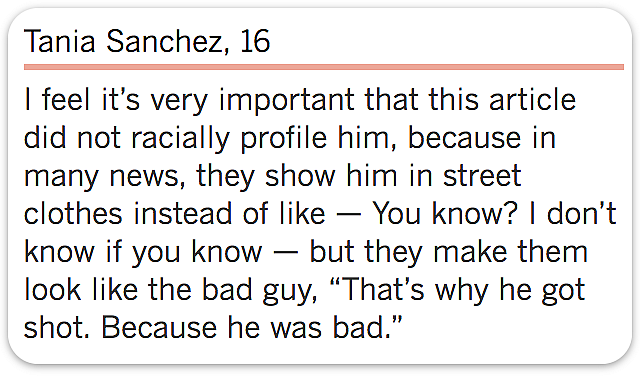
“He was the type of person where he was just content with staying at home and watching movies,” she said.
Recently, Echols reflected on McKinzy’s death as she packed up McKinzy’s apartment in Wilmington.
There was the notebook tracking his dominoes games. There were stacks of photographs, photo albums and Raiders and Lakers mementos.
“My initial response was, how dare you take this man from us in this fashion? Not that guy,” she said. “Now it’s just sadness and sorrow.”
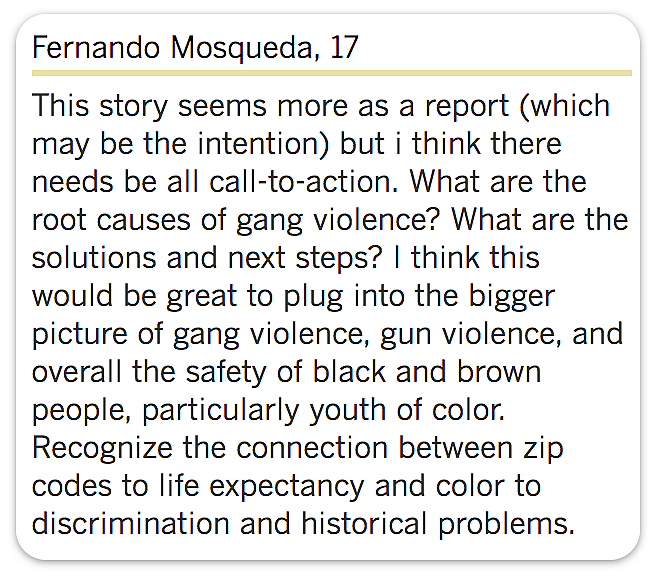
Anyone with information is asked to call the LAPD Criminal Gang Homicide Division at (323) 786-5113. Those who wish to remain anonymous can call Crime Stoppers at (800) 222-8477.
Photo: Maurice McKinzy, third from left, at son Marquis’ high school graduation in 2016. Credit: Courtesy of Heather Echols
Photo, right: Maurice McKinzy, far left, with Dijon Austin, Louis Austin and George McLin on Dijon’s prom night in 2015. Credit: Courtesy of Louis Austin
[This story was originally published by the Los Angeles Times.]

